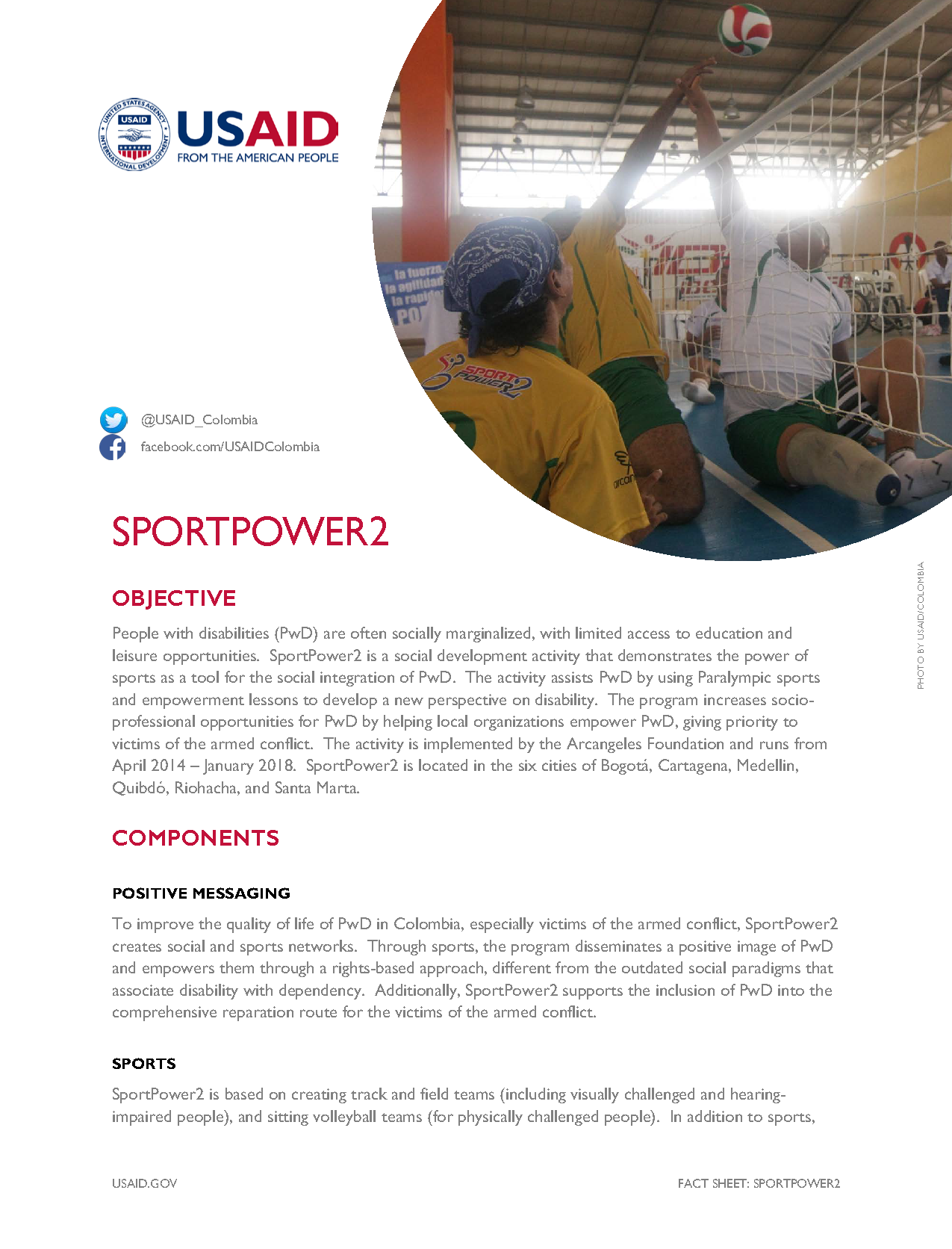SportPower2 Fact Sheet ![]() (pdf - 212k)
(pdf - 212k)
Objective
People with disabilities (PwD) are often socially marginalized, with limited access to education and leisure opportunities. SportPower2 is a social development activity that demonstrates the power of sports as a tool for the social integration of PwD. The activity assists PwD by using Paralympic sports and empowerment lessons to develop a new perspective on disability. The program increases socio-professional opportunities for PwD by helping local organizations empower PwD, giving priority to victims of the armed conflict. The activity is implemented by the Arcangeles Foundation and runs from April 2014 – January 2018. SportPower2 is located in the six cities of Bogotá, Cartagena, Medellin, Quibdó, Riohacha, and Santa Marta.
COMPONENTS
Positive Messaging
To improve the quality of life of PwD in Colombia, especially victims of the armed conflict, SportPower2 creates social and sports networks. Through sports, the program disseminates a positive image of PwD and empowers them through a rights-based approach, different from the outdated social paradigms that associate disability with dependency. Additionally, SportPower2 supports the inclusion of PwD into the comprehensive reparation route for the victims of the armed conflict.
Sports
SportPower2 is based on creating track and field teams (including visually challenged and hearing-impaired people), and sitting volleyball teams (for physically challenged people). In addition to sports, athletes receive psychosocial support and are evaluated to ascertain the impact of the sports program on their well-being.
Employment
SportPower2 works to improve PwDs’ access to the labor market through individual support, specialized work training, and a “SportPower employers’ network.” The network consists of local and national companies that have pledged to work with PwD.
RESULTS
- Trained 269 participants in sports, disability, rights and communications. These complementary modules work to provide the participants with the skills and knowledge to promote and share the rights of PwDs.
- Held twelve regional tournaments in six cities. Moreover, 34 exhibition games have taken place in various cities as part of the program’s communication and visibility strategy.
- Developed a socioeconomic profile of each participant, as well as an occupational profile. Each participant has received psychosocial support and training to support their job search and application submissions.
- Held awareness sessions with 67 businesspersons in six cities. Consequently, 39 of the 67 expressed interest in hiring PwDs. A follow-up session was held to ensure that the hiring process of the businesses included PwDs, and that the businesses are able to accommodate PwDs.








Comment
Make a general inquiry or suggest an improvement.